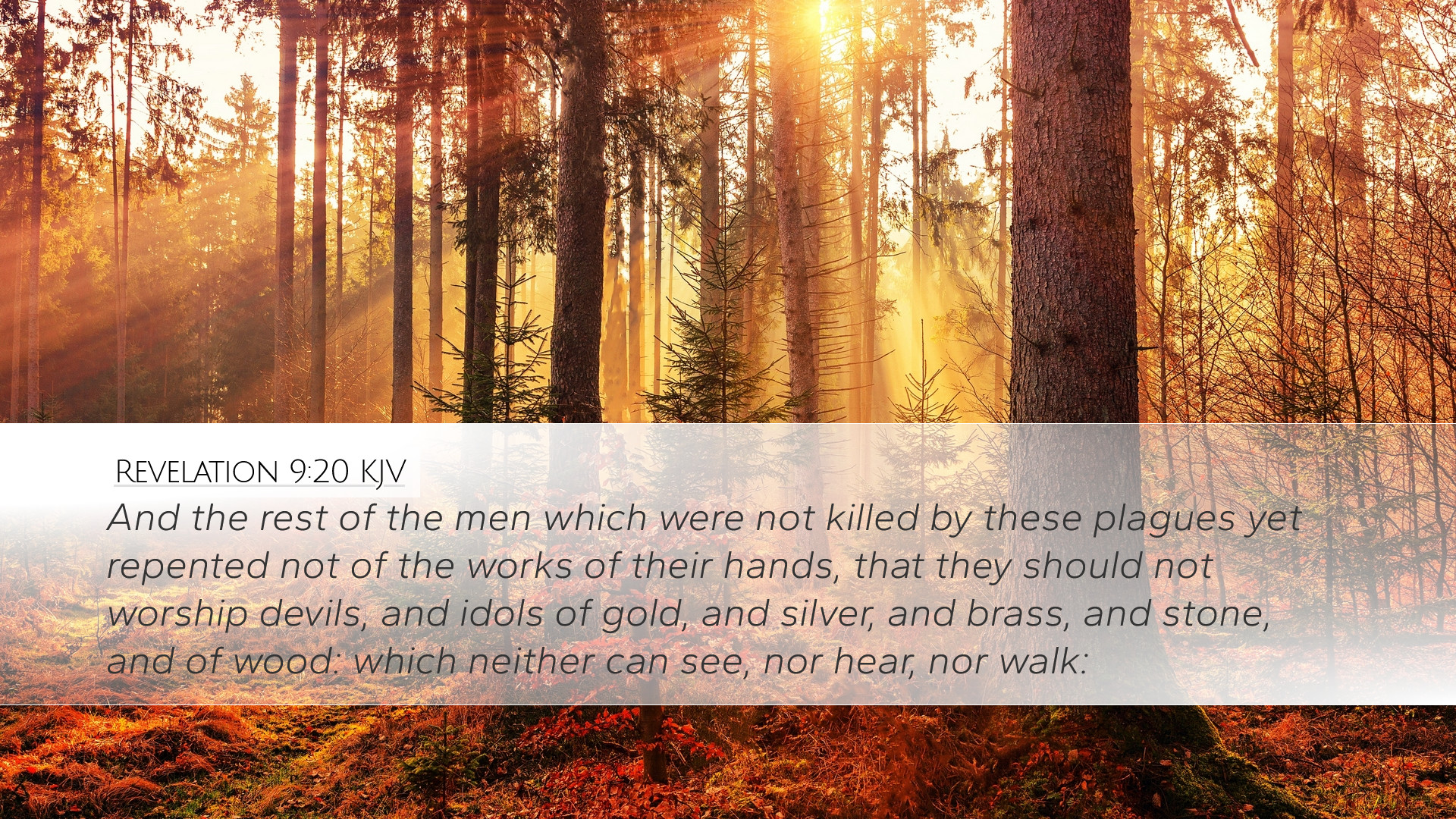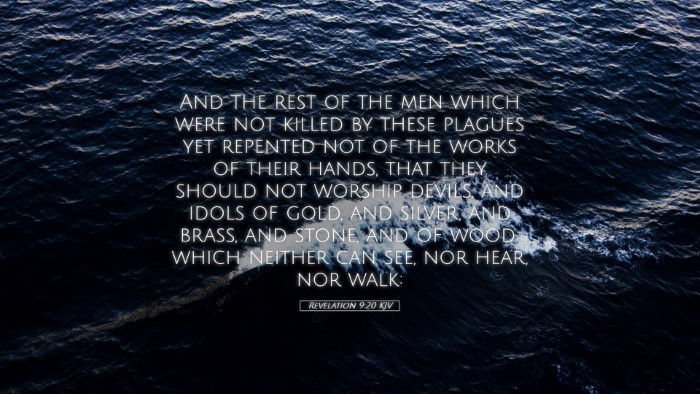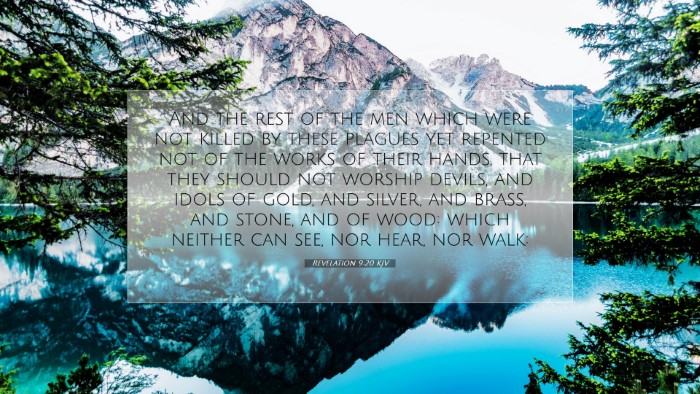Commentary on Revelation 9:20
Text of Revelation 9:20 (KJV): "And the rest of the men which were not killed by these plagues yet repented not of the works of their hands, that they should not worship devils, and idols of gold, and silver, and brass, and stone, and of wood: which neither can see, nor hear, nor walk."
Introduction
The verse in Revelation 9:20 presents a powerful and sobering reality regarding human unresponsiveness to divine judgment. It serves as a stark reminder of the consequences of hard-heartedness and the refusal to turn towards God despite evident signs and plagues that provoke reflection and repentance.
The Judgment of God
In the context of Revelation, the judgments served as both a call to repentance and a demonstration of God’s sovereign authority over the earth. As Matthew Henry notes, the plagues inflicted upon humanity emphasize God's immediate interventions against sin and rebellion.
Albert Barnes elaborates on this concept, highlighting that these judgments are designed to lead mankind to acknowledge their sins and return to God. Yet, the verse depicts a grim reality: those who survived did not change their ways. This disinclination points towards the depravity of the human heart, which persists in idolatry and rebellion against the Creator.
The Nature of Idolatry
Revelation 9:20 outlines the objects of worship that the people clung to: “devils, and idols of gold, and silver, and brass, and stone, and wood.” Adam Clarke emphasizes that worshipping such lifeless entities reflects the profound blindness and foolishness of the human condition.
- Devils: It implies a willful rejection of God—serving demonic forces instead of the divine.
- Idols of precious metals: These symbolize materialism and wealth, which often take precedence over spiritual devotion.
- Idols of wood and stone: These transient materials denote the futility of placing trust in what cannot save or redeem.
The Hardening of Hearts
Moreover, Matthew Henry discusses the hardening of hearts that leads to this unwillingness to repent. The Bible details various examples of individuals and nations that experienced God’s power yet remained obstinate. The plagues, in this context, serve as divine alarms—warnings intended for repentance. Yet many ignore the call, preferring the familiarity of their false security.
This hardening process is demonstrated throughout scripture, indicating that repeated disregard for divine warnings can lead to a spiritual desensitization, as clarified by Barnes. The result is a continual descent into deeper sinfulness, as illustrated in Romans 1:21, where humanity, knowing God, yet chose not to honor Him.
Implications for Believers
For pastors, students, and theologians, this passage serves as a critical reminder of the importance of fidelity to God and the dangers of idolatry in contemporary forms. Adam Clarke poignantly suggests that believers today must guard against the subtle encroachments of modern idols—be they entertainment, wealth, or even self.
The call to evaluate personal priorities, ensuring that they align with a faithful witness to God, rings true. Emphasizing the necessity of repentance, believers are reminded that even amidst God’s judgments, there exists an opportunity—albeit often overlooked—for genuine turning back to Him.
Conclusion
Revelation 9:20 stands as a sobering reminder of the human condition concerning divine judgment. As humans witness the manifestations of God’s sovereign power, it provokes an essential contemplative question: Will we respond with repentance or choose to cling to our idols?
In this age, may we strive to foster hearts of repentance—ever vigilant against the allurements of falsehood and devoted to worshipping the true God. The challenge set forth in this chapter calls for reflection on our allegiances, inspiring not only personal devotion but also communal calls for revival in the chasing of holiness over idolatry.


